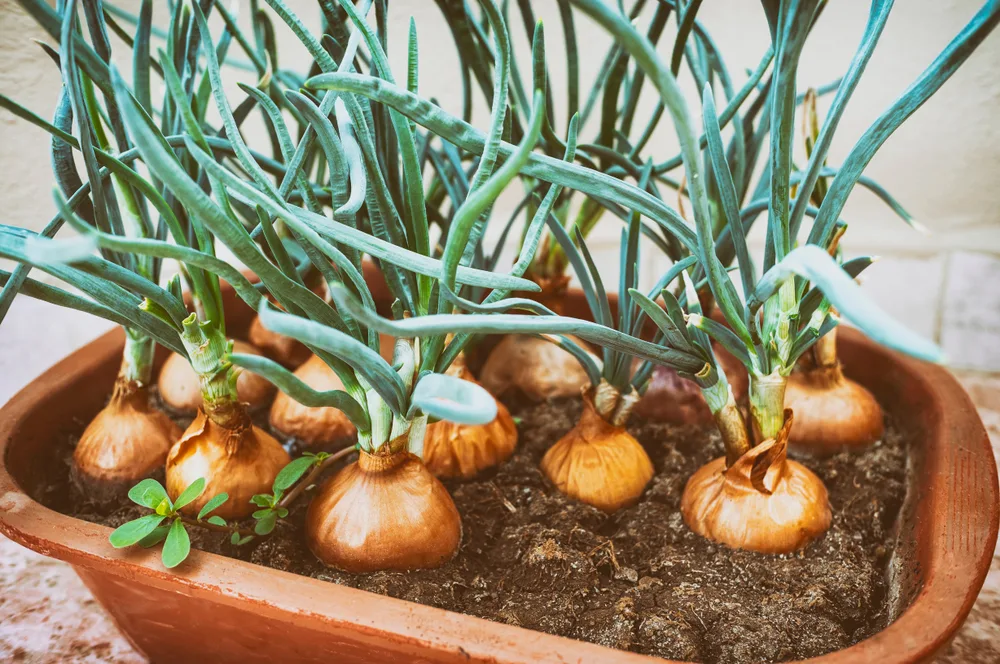
There are a range of different onions to grow in your garden – from large bulbing onions, to red onions, to scallions.
But when choosing which onions to grow, and where to place them in your garden, you need to think about what will grow well alongside them.
You need to think about which plants can benefit them. You also need to consider which plants may suppress onion growth, or be detrimentally affected by the presence of alliums nearby.
In this article, we’ll take a look at some of the best and worst companion plants for onions. By thinking about this list, you should be able to move closer to an excellent plan for polyculture planting in your growing areas.
Why Onions Make a Great Companion Plant For Many Crops
The strong scent of onions and other alliums means that they themselves are a great companion plant for many other crops. They can repel, confuse or distract a number of pest species.
In this list, we will explore plant companions that aid onions, but also plenty that are aided by them. We’ll also talk about some onions which, while they may not have a strong positive or negative impact, can happily grow alongside your onion crop.
As you read this list, it is important to bear in mind that the interactions between different plants are actually little understood. So while science can guide us to an extent, many of our interplanting and companion planting decisions must be made from experience, or, more specifically, the experience of other gardeners.
Fruits and Vegetables to Plant With Onions
First of all, let’s look at some of the other common fruits and vegetables to grow alongside your onions:
1. Other Alliums
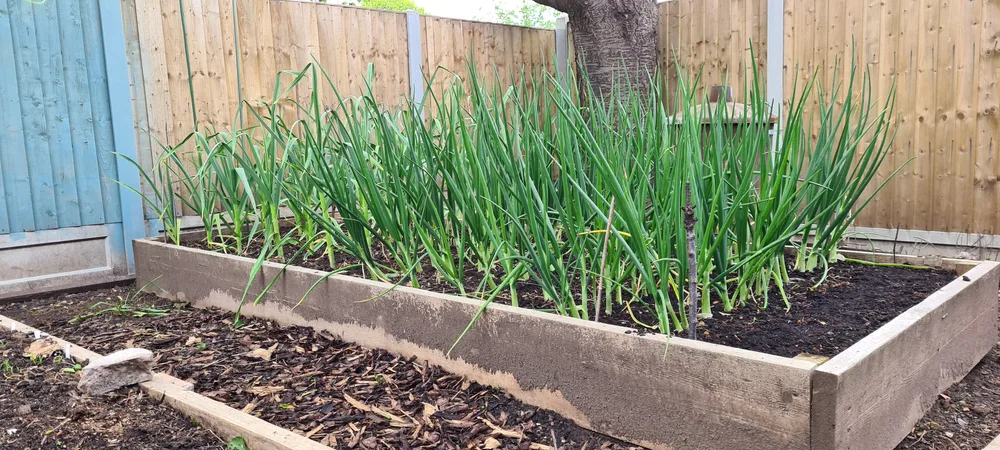
Firstly, of course, you can consider growing your onions alongside other alliums. While it must be remembered that diseases and pests can pass between them, it is still worthwhile thinking about growing more than one member of the onion family in the same growing area or bed.
One benefit of this is that when you grow, for example, onions and garlic in the same bed, you can rotate your crops more easily. But it should also be remembered that they do tend to enjoy the same (or similar) growing conditions.
When it comes to annual alliums, it is best to implement a crop rotation scheme so disease does not build up in the soil.
But onions and other alliums should not be grown alone, even when you want to implement crop rotation. You should definitely consider using them in rotation alongside other plant family groups and never in mono-crop isolation.
2. Brassicas
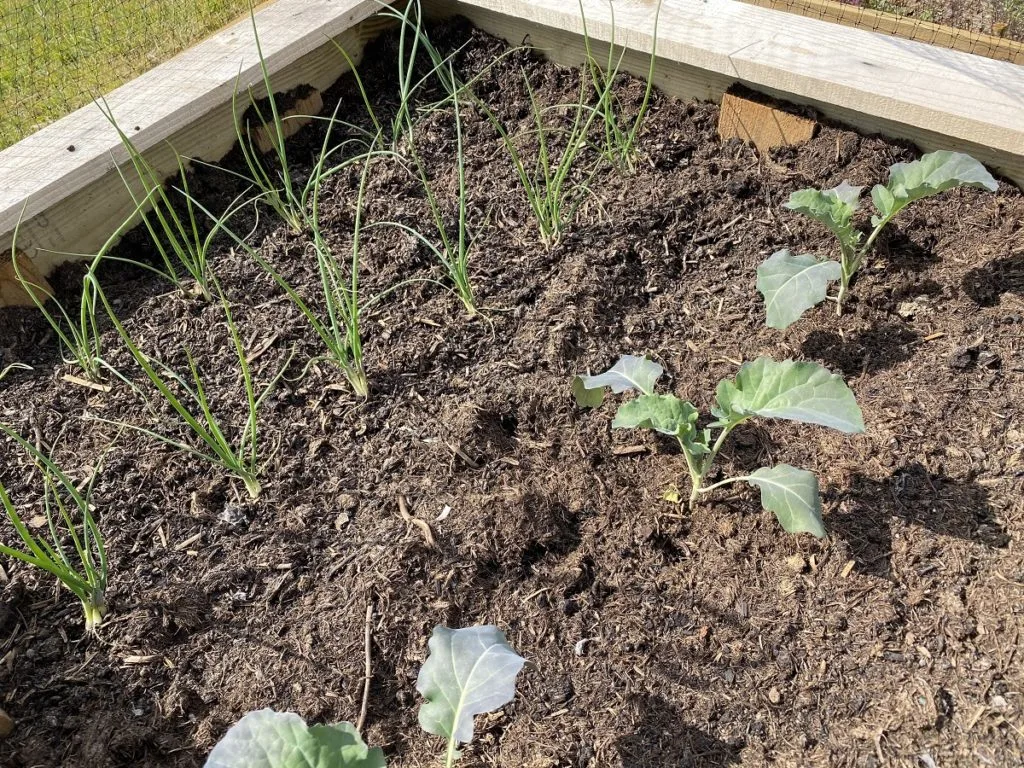
One plant family that can really benefit from being grown alongside onions are the brassicas. Members of the brassica, or cabbage plant family will benefit from alliums that are planted with them because the alliums will help repel, confuse or distract a range of common pests.
So plant onions alongside members of this family, which include:
- Broccoli
- Cabbages
- Cauliflower
- Kale/ Collards
- Kohlrabi
- Mustard
- Pak choi (and other Asian greens)
One exception to this is turnips. Onions may affect the flavor and root growth of your turnip crop.
3. Carrots
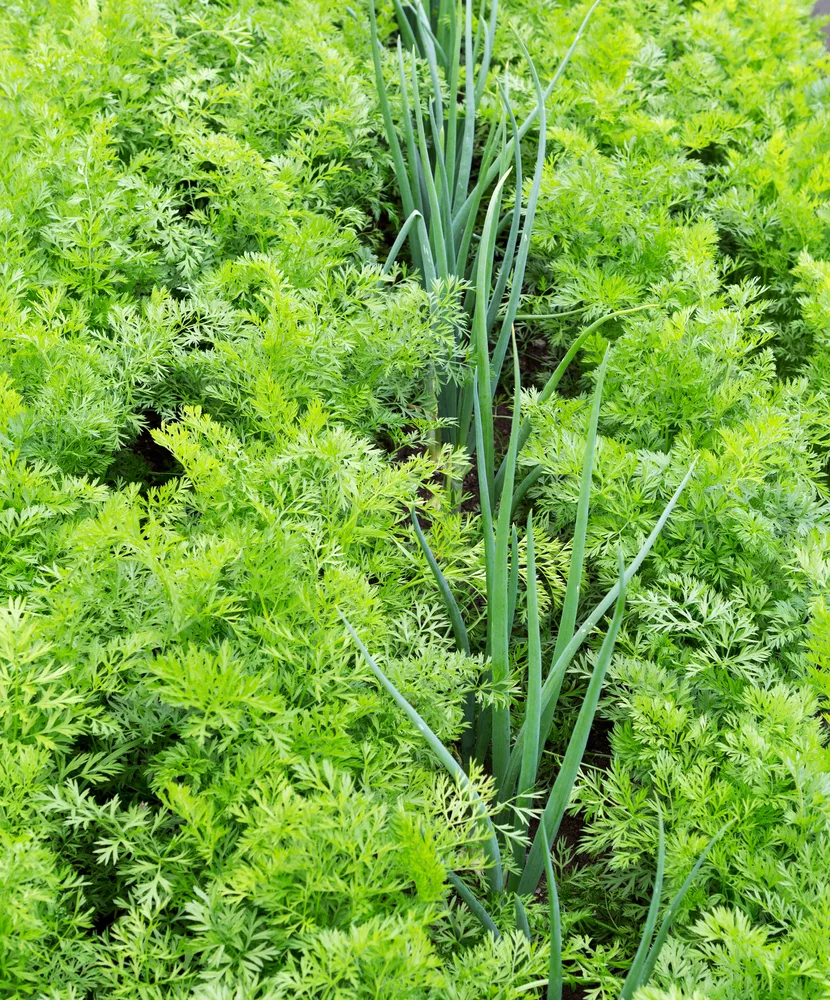
Onions also work extremely well interplanted with carrots. This is a classic companion planting combination predominantly for pest control. The onions help to repel or confuse carrot fly, while the carrots can help reduce problems with onion flies.
4. Parsnips
Another root crop that can work well alongside onions are parsnips. They can grow happily alongside one another and can also help in pest control.
5. Beets
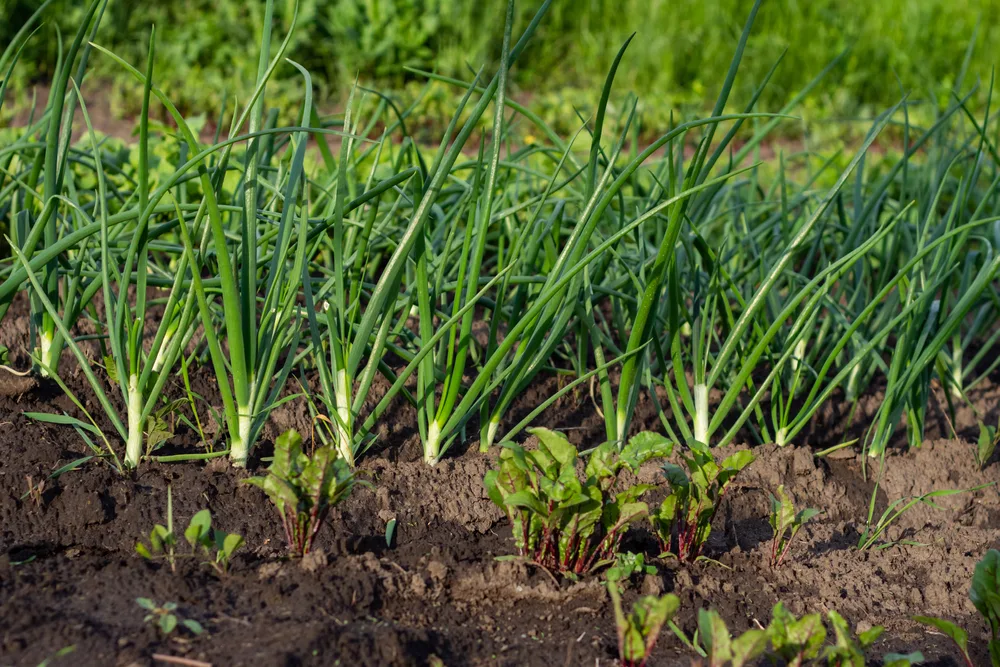
And a third root crop to consider growing alongside onions are beets.
Root crops and alliums won’t compete for nutrients too excessively and like similar conditions. So it can be a good idea to combine onions and root crops in one bed when thinking about crop rotation.
6. Tomatoes, Peppers, Eggplant (And Other Warm Season Crops)
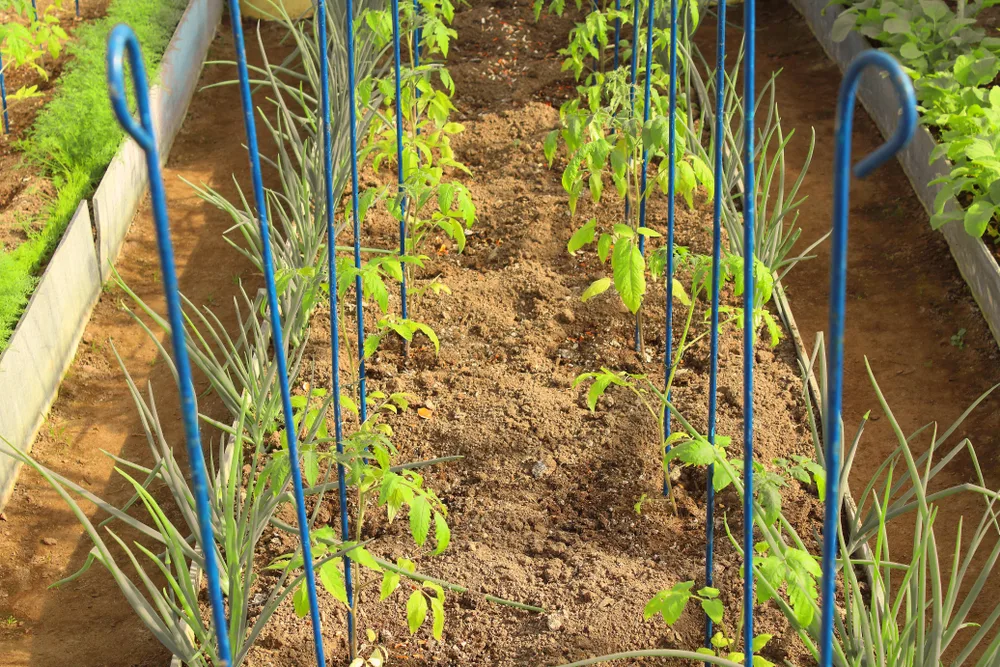
Onions and other alliums can also slot in nicely as companion plants for tomatoes and other members of the nightshade plant family. Again, in this context, the onions can help with controlling a range of different pests that might otherwise trouble your crops.
Onions can also aid in pest control for other warm season crops such as squash, zucchini and cucumbers.
7. Potatoes
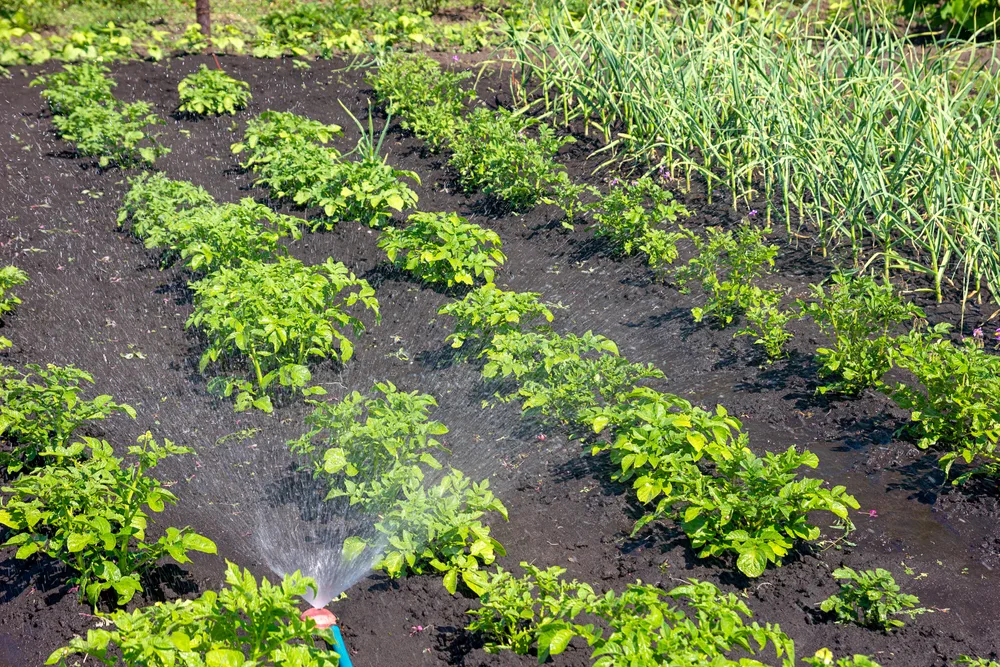
In certain studies, evidence has also suggested that onions intercropped with potatoes can bring pest control benefits. So onions can be a good companion plant for potatoes too.
8. Lettuce
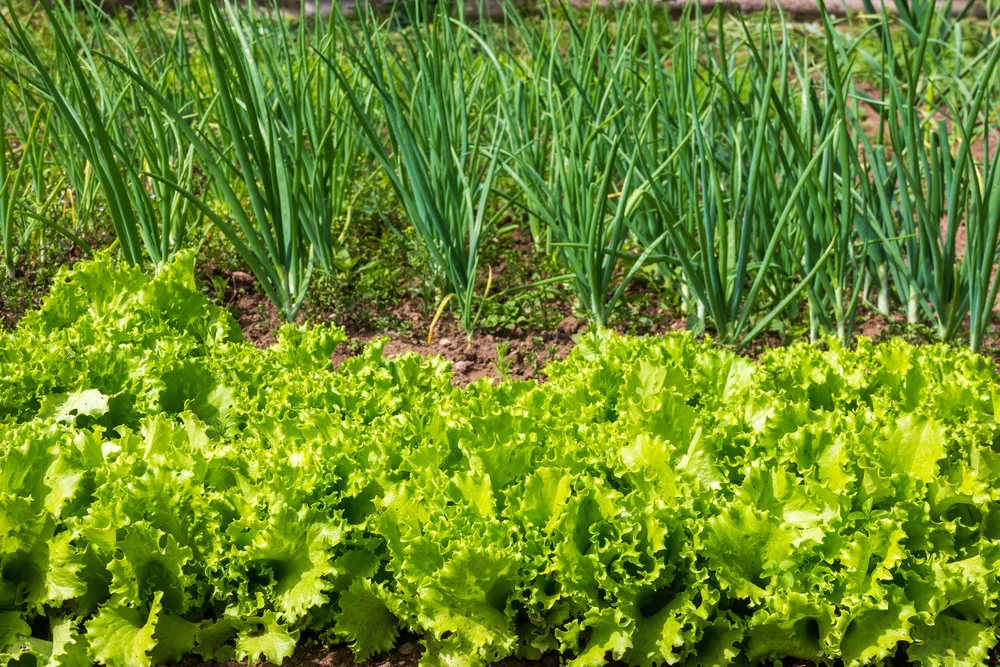
Lettuce is a quick crop that can often fit in around other plants in garden beds and help you make the most of space and time. This is another crop that can work well as a companion plant to onions. Sow lettuce while bulb onions are still small, then harvest to give them more space as they begin to bulb out.
You can also sow onions around a lettuce bed to help protect them from a range of pests.
(The same is true for other leafy greens, such as spinach and chard, for example.)
Radishes also work well with both lettuce and onions, and the three can together be an excellent combination in your garden for spring or fall.
9. Strawberries
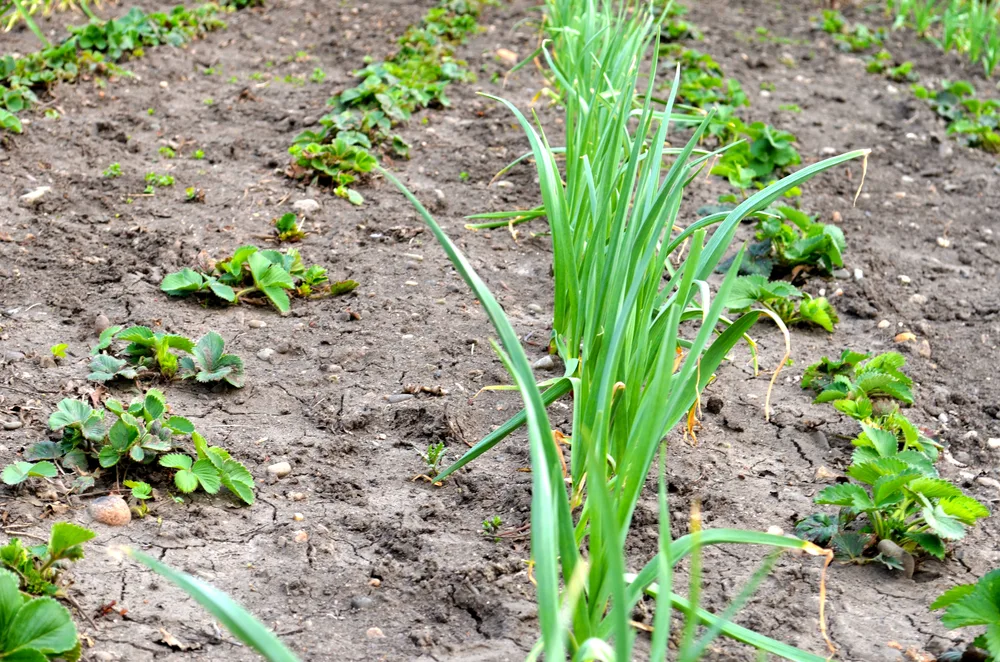
You might be worried that strong smelling onions will confer their flavour to strawberries grown nearby, but this is not the case.
Instead, onions and strawberries can be good companions. Again, onions will help strawberries by repelling or confusing a range of pests.
10. Fruit Trees
Both annual and perennial onions (and other alliums) are also extremely useful for planting alongside fruit trees in a fruit tree guild or forest garden. Again, they are beneficial for their ability to help in the control of aphids and other pests.
Herbs That Make Good Companion Plants for Onions
Next, let’s take a look at some herbs that make good companion plants for onions:
11. Chamomile
Chamomile is one of the herbs said to boost the growth and flavor of onions when grown nearby. Of course, this is also a useful plant to grow for herbal remedies.
12. Summer Savory
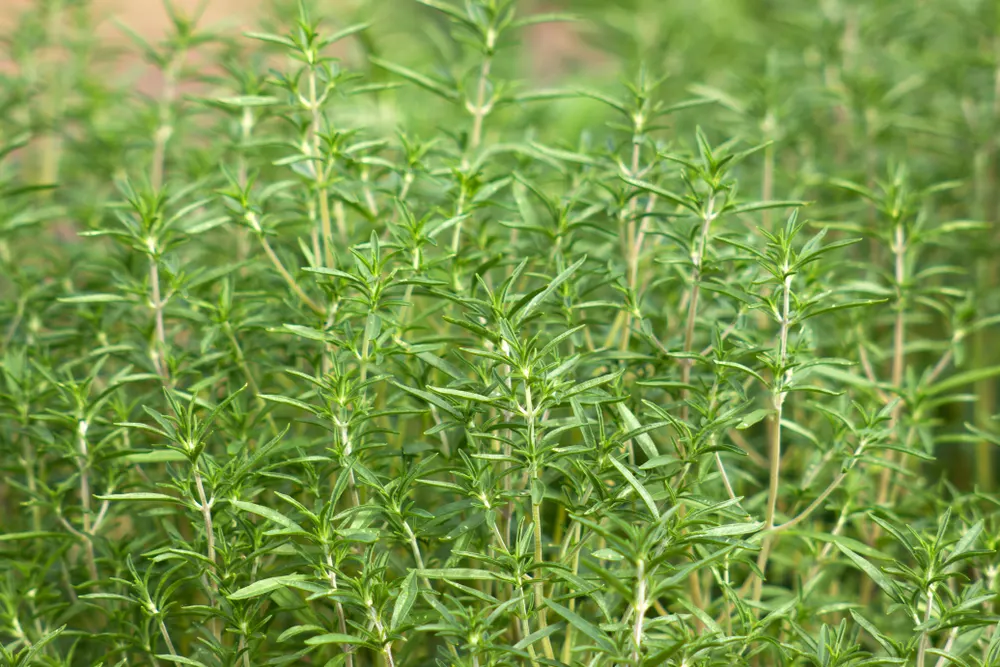
Summer savory is another herb that may aid onions when used as a companion plant. This herb too is said to improve the growth and flavor of your onions.
13. Dill
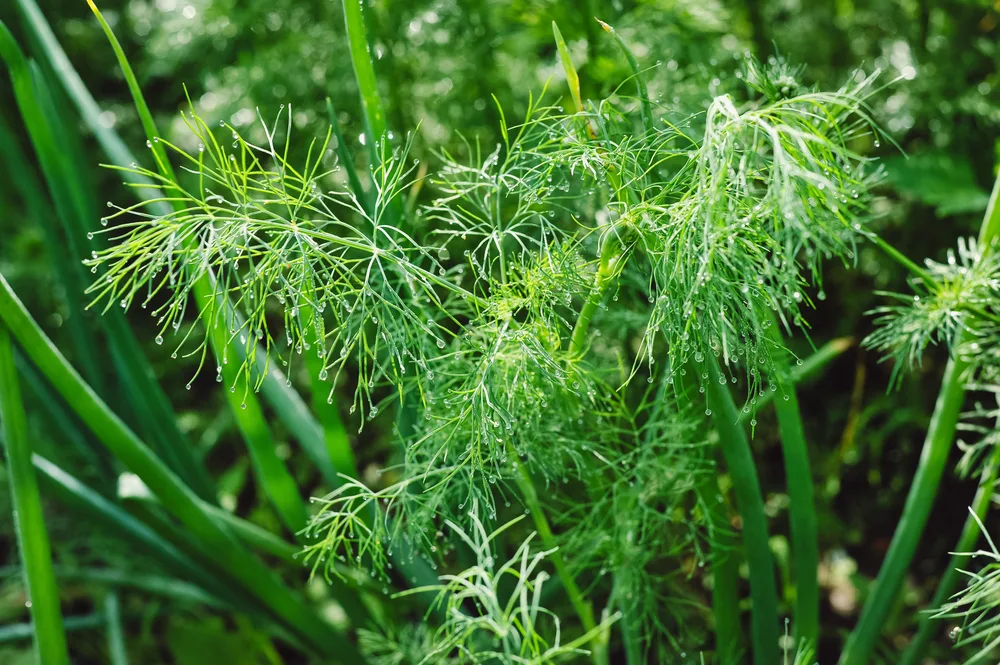
Dill is another common herb described as being beneficial for onion growth and flavor. Of course, it is also a great culinary herb that can be used in a range of different ways in your kitchen.
14. Parsley
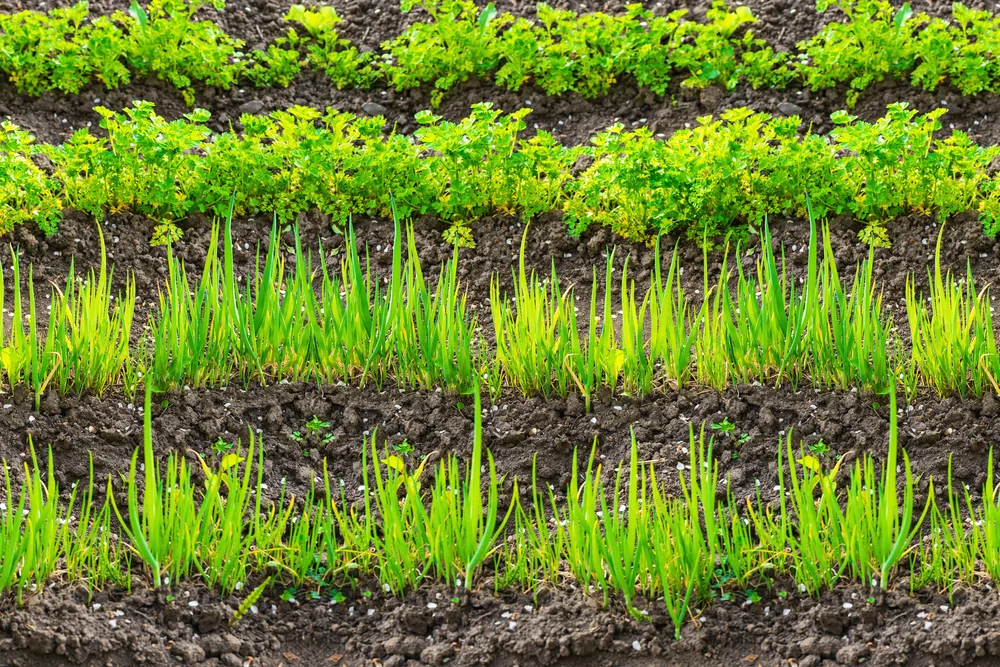
Parsley is very similar in many respects to carrots. And so growing parsley and onions together can confer many of the same benefits of growing carrots and onions together.
15. Mint
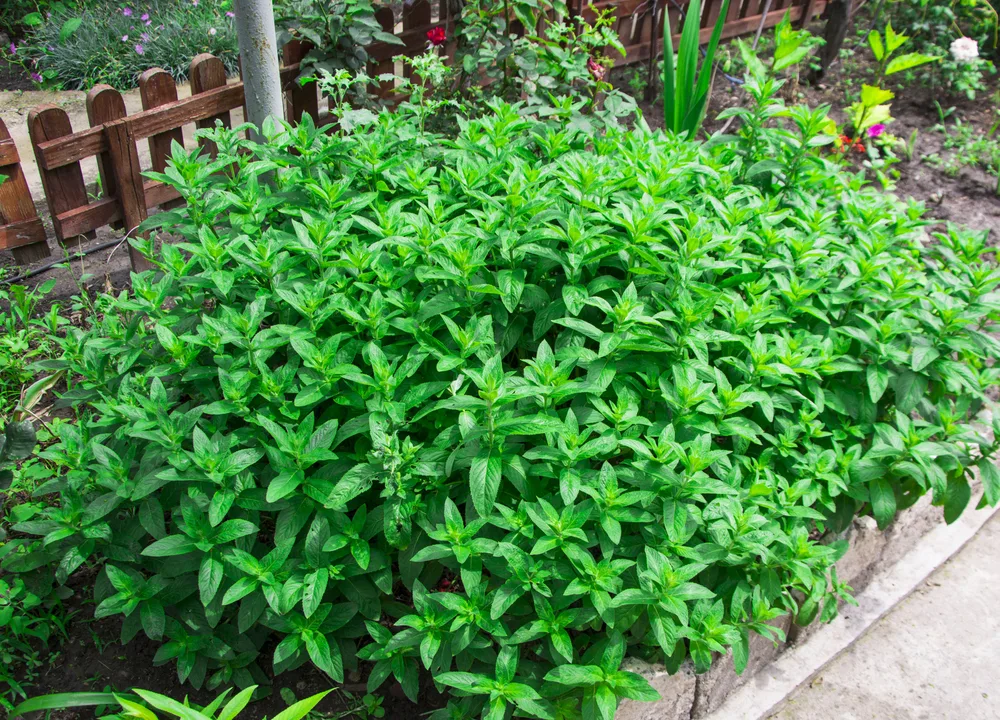
Planting mint close to onions can baffle onion flies. So this can also be a beneficial combination. Just be aware that mints can be prolific growers, and will take over a bed if you let them. Here’s a guide to growing mint without fear.
Flowers That Make Good Companion Plants for Onions
Flowers can mingle happily with your edible crops too (some are even edible flowers themselves). There are a wide range of flowers to grow in your vegetable garden. But here are a few flowers that will either benefit onions, or benefit from having onions growing nearby:
16. Marigolds
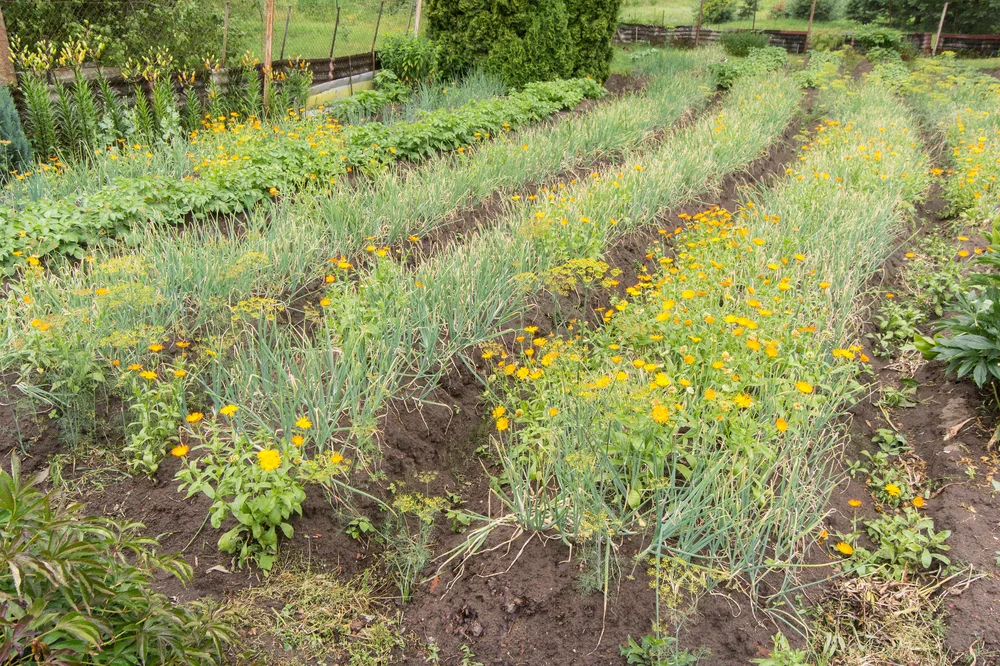
Marigolds may help to suppress nematodes in the soil, and so, therefore, may help in protecting onions against nematode attack.
17. Pigweed (Amaranth)
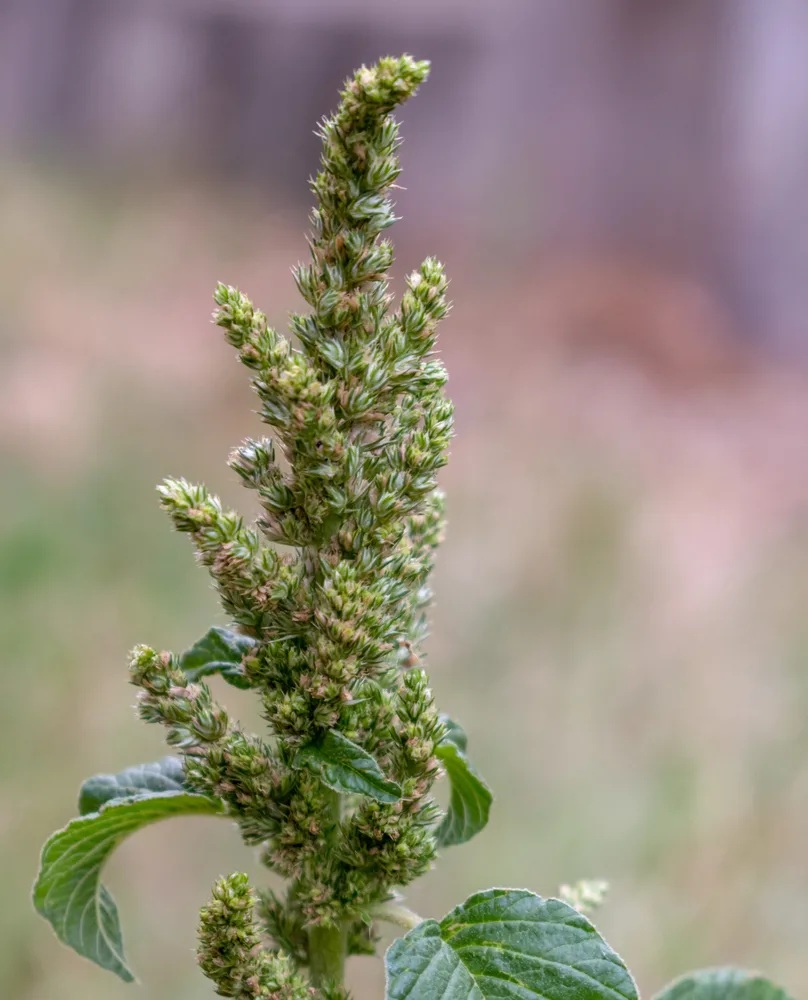
Pigweed can be beneficial in your vegetable beds because it is a dynamic accumulator that can draw up nutrients that help onions to grow strong.
18. Sow Thistle
Sow thistle is another ‘weed’ that can be beneficial for onions in a similar way. These and other deep rooted plants can be chopped and dropped to return nutrients to the soil to benefit other plants grown nearby.
19. Roses
Roses are one ornamental plant that can be badly affected by aphids and other sap sucking pests. Planting onions close by may help to a degree in repelling these pests.
20. Other Ornamental Flowers
Onions will also similarly help a range of other ornamental flowers, by covering up their scent and confusing, distracting or repelling many of the common pests that plague them.
Planting onions and other alliums is not a panacea for pest control. It won’t keep pests away entirely. But for many plants, it can certainly help at least to a degree to keep the garden ecosystem in balance.
4 Things To Never Plant Near Onions
As mentioned above, onions are great companion plants for a wide range of different crops. But there are certain plants that you should avoid planting near onions, including:
1. Peas
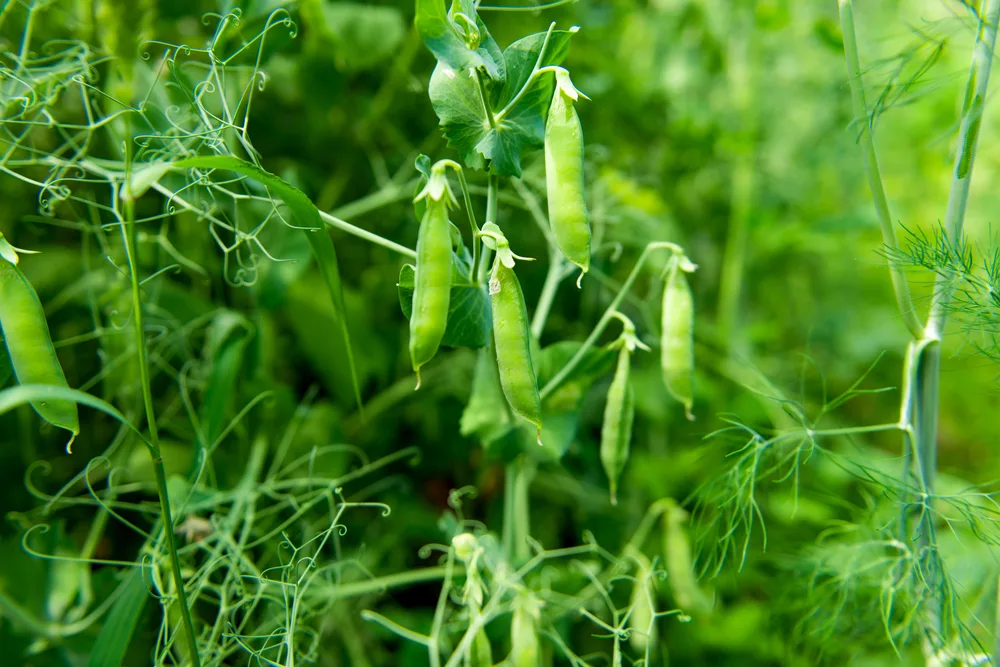
Peas may grow less strongly when onions are close by. And they may also lead the onions themselves to grow less strongly too. Peas and onions planted together are believed to have somewhat stunted growth.
2. Beans
The same thing is true of beans, and other legumes. No beans, peanuts or other leguminous plants should be planted alongside your onions. If you want to achieve the best results for both crops – keep them apart.
3. Asparagus
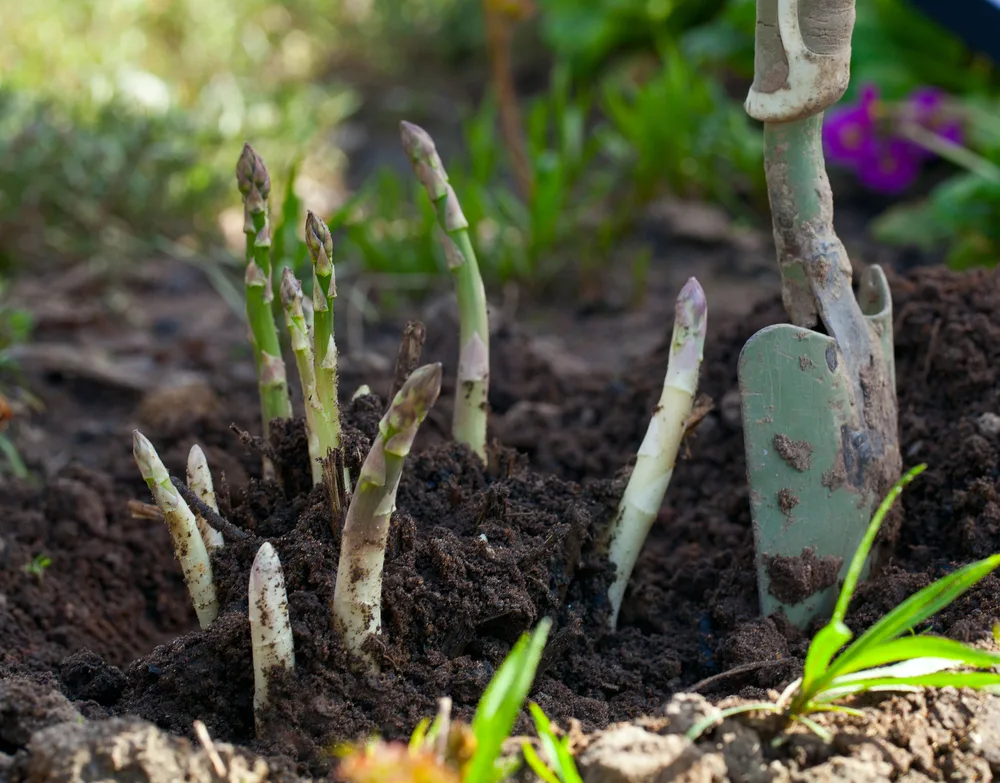
Onions will not only stunt the growth of asparagus. They can also affect the flavor of your asparagus crop. So be sure to keep these crops in different beds or growing areas.
4. Sage
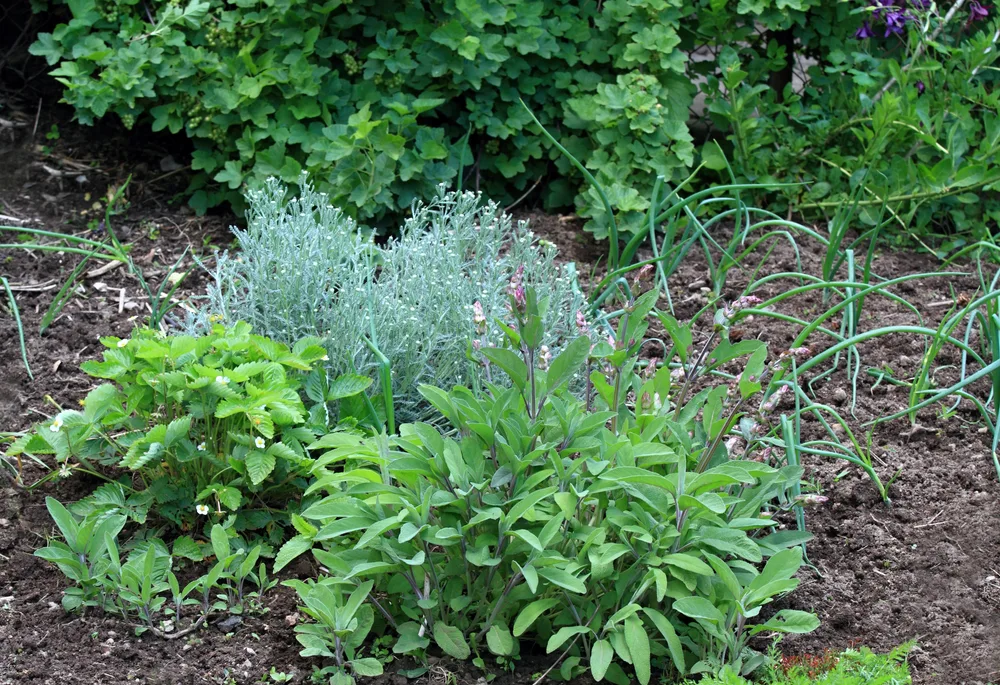
Sage may work well with onions in stuffing and other recipes but it may stunt the growth of onions if you grow the two plants as companions.
The information above does not include every potential plant combination, of course. Onions can find a place and be beneficial as companion plants for a huge range of different crops and other garden plants. But it should help you narrow down your options. And decide where and how to include onions in your planting schemes.
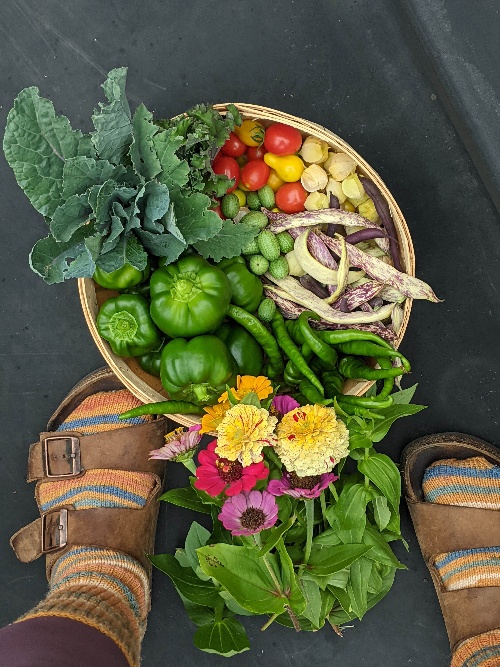
Get the famous Rural Sprout newsletter delivered to your inbox.
Including Sunday musings from our editor, Tracey, as well as “What’s Up Wednesday” our roundup of what’s in season and new article updates and alerts.


